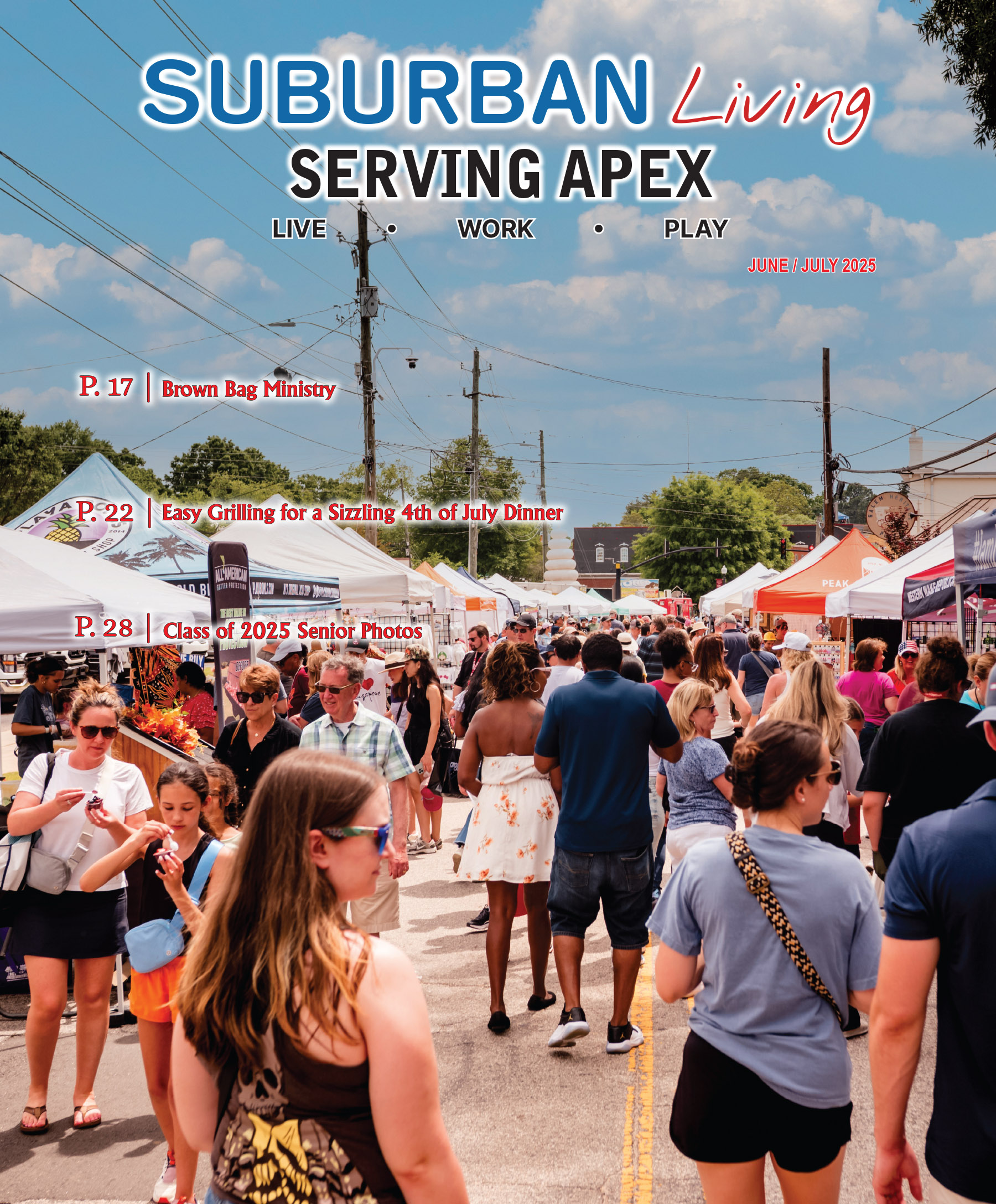BIG NEWS! In the recent Town of Apex election, almost 25% of registered voters participated! Wait—25%? That means that 75% of us didn’t vote? Well, it could have been worse. In all of Wake County, almost 80% of us stayed home when we had the opportunity to choose the folks who direct our governments. What is worse, it’s estimated that more than 8,000 persons in Apex, and more than 73,000 in all of Wake County, are eligible to register and vote but don’t do so. This likely won’t be a big surprise to readers of Suburban Living (they are a very intelligent readership) but as we approach the political primaries in May when the parties will choose who they will put forth for election, and the general election this November, it is something we ought to discuss.
It would be easy to attribute lower voting participation over the past two years to the ongoing pandemic, but in reality participation was up from historic lows. According to Professor John Dinan of the Wake Forest Department of Political Science, the 2020 federal and state elections saw the highest turnout in years (just under 67% national and just under 65% in North Carolina). But why aren’t voter participation rates even higher?
“Although participation rates in the U.S. in 2020 were the highest they have been in 120 years, it is still the case that voter turnout rates in the U.S. are not as high as they are in a number of other countries,” Professor Dinan explained. “When political scientists consider why U.S. voting rates lag behind other countries, they note that election day in the U.S. is on a Tuesday whereas in most other countries elections take place on a weekend when there are fewer conflicts with work. Scholars also note that a few countries make voting compulsory, which naturally boosts turnout considerably. These are some of the reasons given for why U.S. turnout rates are not as high as in other countries.”
Reported by World Population Review, in the 2020 U.S. presidential election, an estimated 158 million Americans turned out to vote. About 66.5% of eligible voters voted in the 2020 election, the highest turnout since 1900. The 2020 election saw about 20 million more votes than the 137 million in the 2016 election. Only about 55.72% of eligible voters voted in the 2016 election. Even in the 2020 election, U.S. voter turnout falls behind several developed nations around the world.
Professor Dinan added that one factor that likely contributed to higher voter turnout in the U.S. in 2020 was the prevalence of voting by mail. A handful of states already had full vote-by-mail systems prior to 2020, whereby ballots are automatically mailed to voters and the completed ballots are returned by mail. But some additional states took this step in 2020 on account of COVID concerns. Still other states expanded their absentee-voting policies in 2020, to allow anyone to request an absentee ballot without having to give a reason.
But voter turnout is not only influenced by the voting rules in place; it is also influenced, as studies have shown, by whether political parties or groups make direct contact with potential voters and persuade them to vote, and this strategy of making direct contact with voters (and the more direct the contact the better, in that talking in person is preferable to calling by phone, which is, in turn, preferable to sending e-mail messages or letters) has been shown to boost turnout.
The Chicago Tribune printed a famous Tip O’Neill story that offers a hint. It comes at the end of a story he reportedly used to tell about Elizabeth O’Brien, a neighbor of his when he was growing up who told him, after one election, that she’d voted for him even though he hadn’t asked her to.
“I’ve lived across the street from you for 18 years,” he protested, according to one biography. “I cut your grass in the summer and shovel your walk in the winter. I didn’t think I had to ask for your vote.”
Mrs. O’Brien’s response: “People like to be asked.”
Historically, citizens give a number of reasons for not voting: “My vote won’t count,” “I don’t like the candidates,” “I don’t follow politics,” or the catch-all, “I’m too busy.”
However, Suburban Living asked a few folks why they do choose to vote:
“I vote because it is my responsibility as a citizen to keep our democracy going. I vote because I want my voice heard by our local and federal government. As an immigrant, and a naturalized citizen, I value our democracy!” – Kunjan
“I vote because I feel it’s my responsibility to participate in selecting good leadership to improve the government at each level. I also believe that if you don’t vote you have no right to complain/criticize.” – NancyLynn
“I vote because free and fair elections are the bedrock of our democracy/republic, and the only civic event that separates our country from autocracies and dictatorships.” – John
“I like participating in an event that includes LOTS of people. At the end of the day, when the results are announced, I like feeling that I participated in a big event.” – David
So, is it hard to register to vote? Not according to the Wake County Board of Elections:
You must be a United States citizen.
You must be 18 years old or will be at the time of the next general election.
You must be a resident of Wake County, North Carolina, for 30 days before the election in which you intend to vote.
You must not vote in any other county or state after submitting a voter registration application in Wake County. If registered elsewhere, you understand that you are canceling that registration upon becoming registered to vote in Wake County.
To register to vote, you must not be currently serving a felony sentence, including any probation, post-release supervision, or parole. However, you may register and vote if you are serving an extended term of probation, post-release supervision, or parole, you have outstanding fines, fees, or restitution, and you do not know of another reason that your probation, post-release supervision, or parole was extended. No further documentation is needed.
For all the ins and outs of participating, have a look here: https://www.wakegov.com/departments-government/board-elections/voter-information/register-vote.
In 2022, we will select many of the persons who will operate our state and federal governments. These are our fellow citizens who will impact our education system, our environment, how much we pay in taxes and how we interact with other countries, to name just a few of the great responsibilities we will give them.
Let’s make a plan now to participate!








